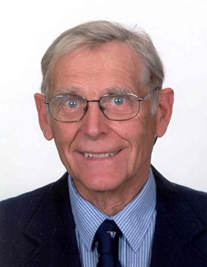Eric B. Forsyth: Difference between revisions
No edit summary |
m (Text replace - "[[Category:Power, energy & industry application|" to "[[Category:Power, energy & industry applications|") |
||
| Line 9: | Line 9: | ||
An [[IEEE Fellow Grade History|IEEE Life Fellow]], and holds a master of applied science from the University of Toronto. He received the Dielectrics Prize from the Japanese Institute of Electric Engineers and also received the award for excellence in Technology Transfer, Federal Lab Consortium, U.S. | An [[IEEE Fellow Grade History|IEEE Life Fellow]], and holds a master of applied science from the University of Toronto. He received the Dielectrics Prize from the Japanese Institute of Electric Engineers and also received the award for excellence in Technology Transfer, Federal Lab Consortium, U.S. | ||
[[Category:Power, energy & industry | [[Category:Power, energy & industry applications|Forsyth]] [[Category:Power transmission|Forsyth]] | ||
Revision as of 13:49, 13 November 2013
Biography
Mr. Forsyth’s pioneering work on the design of superconductors has provided vast improvements to power transmission systems including very high power density, benign environmental impact and the ability to transport power for very long distances.
During 35 years at the Brookhaven National Laboratory, he worked on the design of the Alternating Gradient Synchrotron (AGS) and he led the design and creation of Brookhaven’s superconducting power transmission project, which produced a wealth of knowledge on the performance of conductors, dielectric insulation, cryogenic refrigeration at very low temperatures and system operation under a variety of conditions including simulated emergencies. He also chaired the Accelerator Development Deployment Department, charged with constructing a booster accelerator for the AGS, and constructing magnets for the Superconducting Super Collider in Texas.
An IEEE Life Fellow, and holds a master of applied science from the University of Toronto. He received the Dielectrics Prize from the Japanese Institute of Electric Engineers and also received the award for excellence in Technology Transfer, Federal Lab Consortium, U.S.
